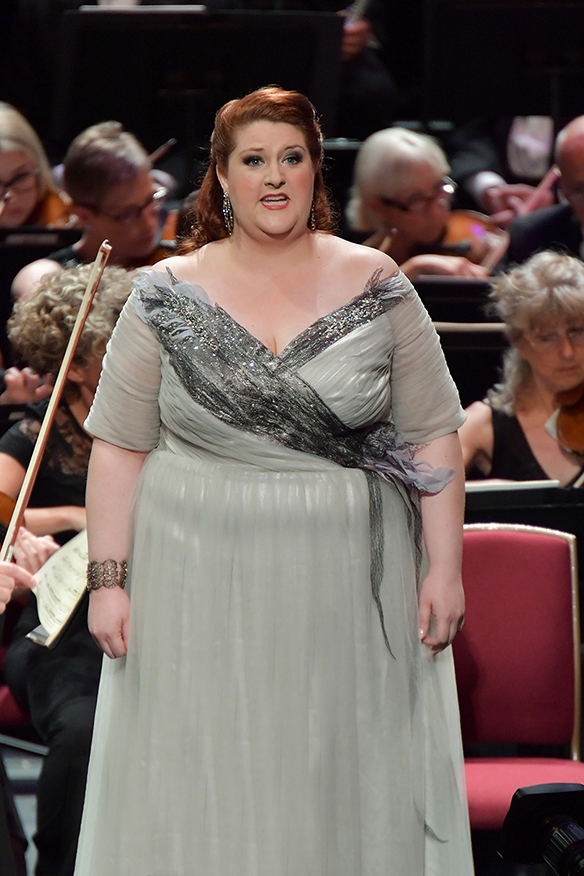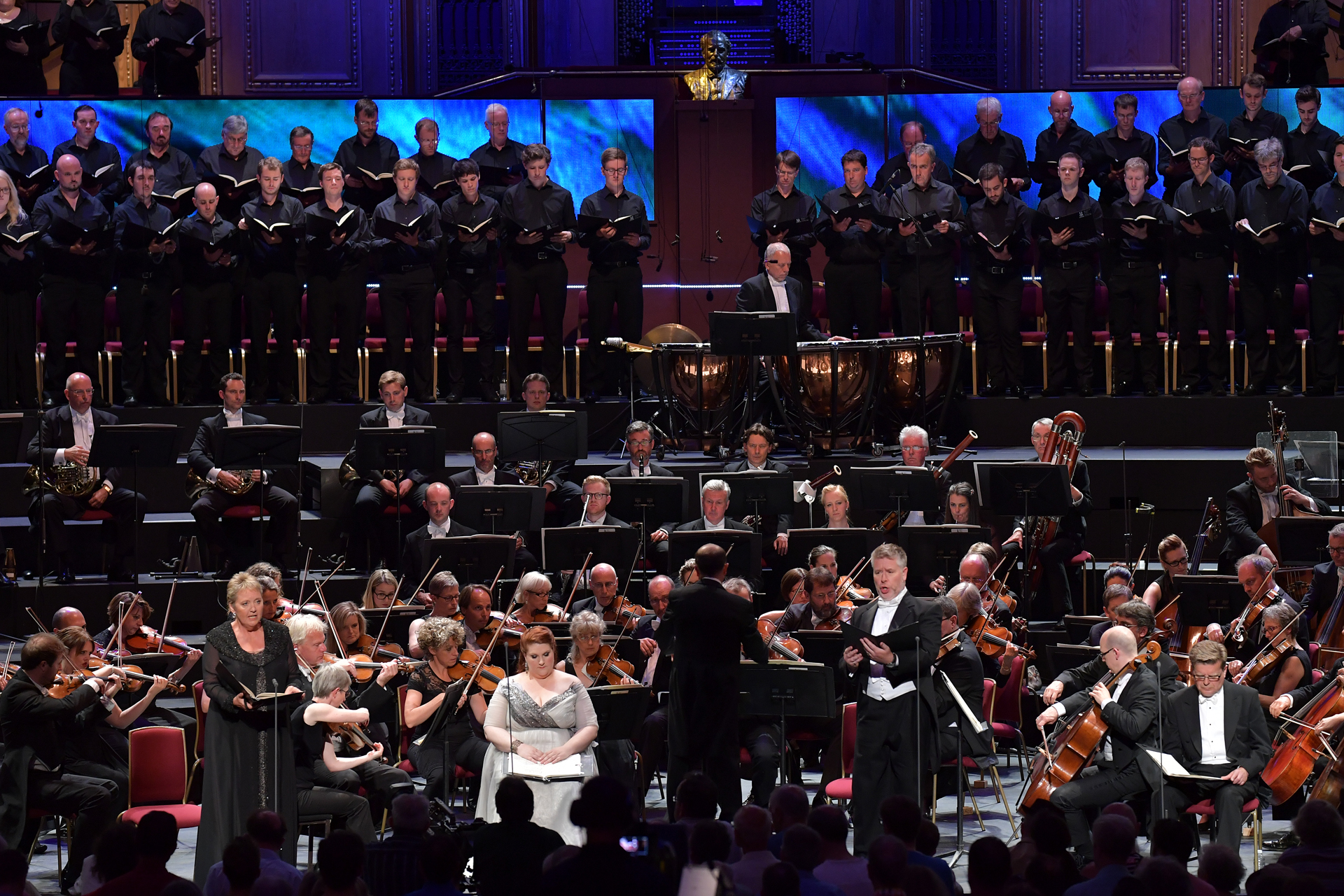It's not often you think you detect a future Brünnhilde in a soprano performing a great Verdi role, but that was the case when American Tamara Wilson made her UK debut last autumn as a stunning Leonora in the ENO production of Verdi's The Force of Destiny. So would she sing the Ring? Not for 10 years at least, she said. But then Mark Wigglesworth, a conductor she knew she could trust as partner, proposed the final scene of Die Walküre at the Proms, and the rest should go down in history.
Not that just the last father-daughter confrontation, albeit one of the greatest in all opera, is an entirely satisfactory choice without at least the rest of the act preceding it - though, odd as it looked on paper albeit rare vintage Proms programming this year, it worked perfectly well coming before Tippett's A Child of Our Time, in which Wilson also seared in the spiritual soprano role. But it took her no time at all to impress on our minds her own image of Wotan's disobedient valkyrie daughter, sorrowful but still fiercely defiant. After a few minutes of airborne, lighter than usual Ride of the Valkyries, the BBC National Orchestra of Wales' woodwind ensemble did the set-up work, Wigglesworth shaping heartbreak phrases before the first of many hushed but perfectly-projected lines from Wilson.
 You couldn’t fault her in verbal intelligence, subtlety and every readable reaction in that beautiful face when she wasn’t singing; but above all it’s the placement of the extraordinary instrument, never too low that it makes any singing in the higher register effortful, which should see her through to a sustained career in the big Wagner roles (though there’s no reason why she shouldn’t keep on singing Mozart and bel canto too).
You couldn’t fault her in verbal intelligence, subtlety and every readable reaction in that beautiful face when she wasn’t singing; but above all it’s the placement of the extraordinary instrument, never too low that it makes any singing in the higher register effortful, which should see her through to a sustained career in the big Wagner roles (though there’s no reason why she shouldn’t keep on singing Mozart and bel canto too).
Her Wotan was bass James Creswell, the Father Superior who tortured her Leonora so in the best stretch of Calixto Bieito’s ENO Force of Destiny. Stentorian and diction-clear, he can't or won't sing softly, which meant that Wotan’s inner voice of love and conscience couldn’t really deepen the picture. But, once he’d had a discreet cough, the summoning of Loge was as thrilling as it could be. Wigglesworth proved flexible in tempi, supportive of the singers and moving things on for them if necessary but taking all the time in the world for what we had to imagine as the great embrace of father and daughter before Wotan puts Brünnhilde to sleep and surrounds her rock with fire. This was pure Goodall slow burn, the climax perfectly gauged just as that Wagnerian master knew how to achieve it. I’m well aware that from my position in the Albert Hall we were getting the brass head on, so balances may sound more effective on the radio and TV broadcasts.
Wigglesworth has mentioned how “The world turns on its dark side” were the words that strikingly greeted him as he opened the score to study Tippett’s A Child of Our Time. This was always going to be a topical cause for reflection, and how much more so now that desperate teenager Herschel Grynszpan’s assassination of a Nazi official finds a different reflection in the horror of Munich, triggered by an alienated child of our own time. So much else here resonates about the state of the world and the plight of the refugee: “they shall not work, nor draw a dole./Let them starve in No-Man’s-Land” declare the Chorus of the Self-righteous.
Not that Tippett’s early work is a masterpiece throughout; the relentless if necessary greyness of all bar the redemptive ending and the spirituals, the equivalent of the chorales in Bach’s Passions, can be hard going, while the words sometimes stick in the craw. Though the fragmentary nature of the work’s shape gives little indication that Tippett would become a great opera composer – ENO unwisely chose to stage the work, and I can’t remember a thing about it - Wigglesworth urged the magnificent forces of the BBC National Orchestra and (huge) Chorus of Wales to find meaning and urgency throughout.
The textural clarity was astonishing from so many choral voices, and reflected in the soloists – Susan Bickley, the ever-amazing Peter Hoare as the Boy, and a returning Wilson and Creswell. The payoff was a lead-in to the final “Deep River” of supernatural beauty – woodwind again took the lead, balancing the sorrow of Brünnhilde’s plight with Tippett finding his true voice in a pastoral of spring – which Wigglesworth managed to sustain until the breathtaking final cut-off (those choral rolls at “I want to cross over” will never be forgotten). Wilson’s artistry was the icing on this black bread; again she floated the high phrases in some effortless pianissimos. The ultimate challenge in that respect is to come in the “Libera me” of Verdi’s Requiem on the penultimate night (9 September); you can rest assured that she’ll tick every expressive box in that even bigger challenge.
















Add comment